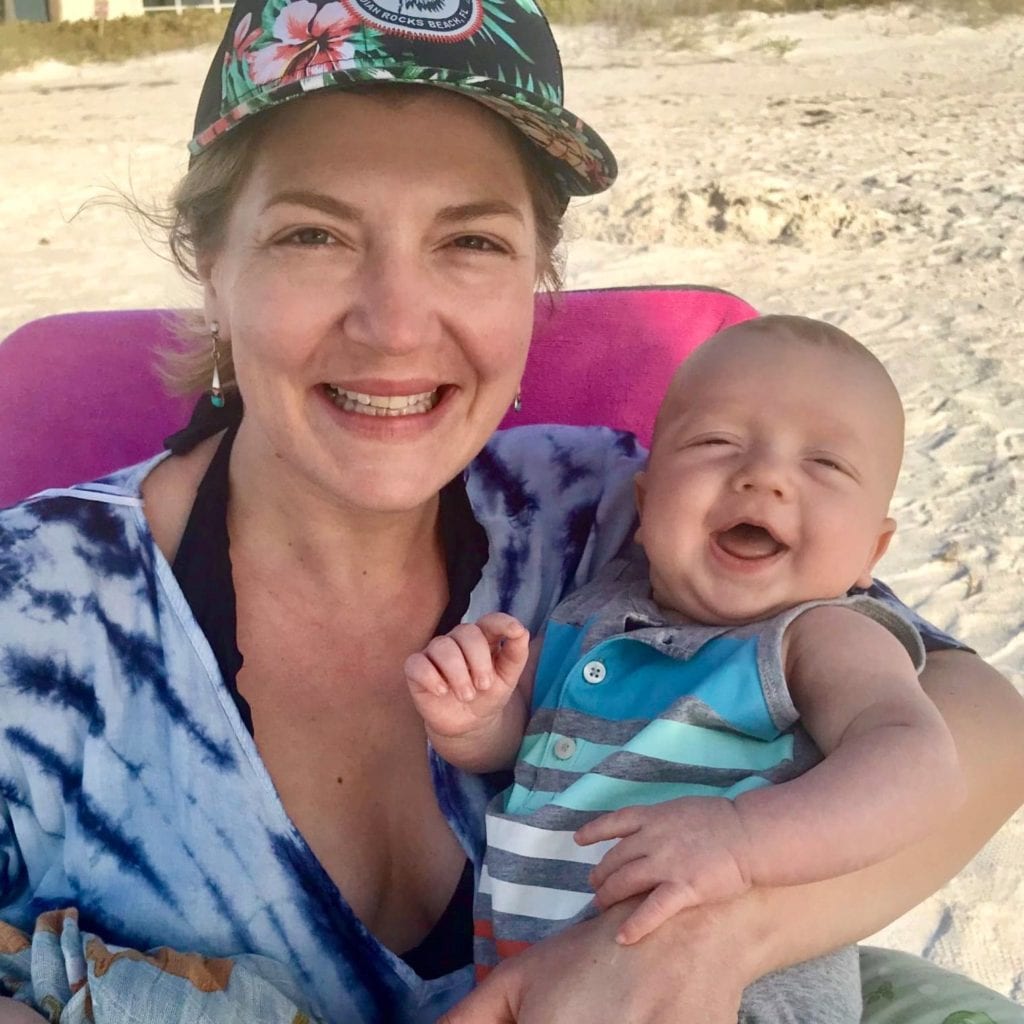Describe your life prior to diagnosis:
Before celiac, I was a very adventurous eater. I love cooking and traveling, and food was one of the biggest ways I was able to explore. I’m also not a picker eater and don’t have any food allergies so I was able to try everything, and I enjoy trying new foods.
How did you come to suspect that you have celiac disease?
My celiac disease was triggered when I was pregnant. During my first trimester my iron levels were normal, but by my second trimester they became so low that I was anemic. Low iron is fairly common during pregnancy, so my provider recommended increasing supplements. But no amount of supplements or iron-rich foods seemed to increase my iron levels. It got to the point during my third trimester that I had to routinely go to the hospital for several hours at a time for IV iron infusions in order to get my iron up before giving birth. My healthcare providers all assumed the low iron was simply caused by the pregnancy, no one suspected a separate issue. It wasn’t until I visited a new primary physician several months after my son was born, who wanted to retest my iron, that we realized there was still a problem as my results indicated severe anemia four months postpartum.
How long did it take for you to get diagnosed since your first symptoms?
Looking back I realize I had some symptoms of celiac disease, but they were all mild or they all could have been explained by being pregnant/postpartum. The only real glaring symptom was iron-induced anemia. It was frustrating to have blood tests almost every week for the second half of my pregnancy and have the results consistently show the same low iron results even though I was taking a high dose of iron supplements and going out of my way to eat more iron-rich foods. It seemed like my healthcare providers had no explanation aside from “sometimes the body does strange things during pregnancy.” Knowing what I know now about celiac disease, and how low iron is a very common symptom and that pregnancy can trigger celiac disease, it seems like it should have been something that was picked up on earlier. That said, I’m grateful that I was diagnosed within the first year of having this disease as I know so many others go much longer without the proper diagnosis.
Describe your experience with living with celiac disease or non-celiac gluten sensitivity:
Switching to a gluten-free life was been a major change. I miss my favorite foods, I miss trying new foods without a care, and I miss the affordability of gluten compared to gluten-free foods. I love to bake and cook (I even used to bake bread on a regular basis), and getting used to gluten-free cooking has been a challenge. While there are still many delicious things I can have, it makes me sad missing the cook I used to be. But even more than missing gluten foods, it the constant vigilance needed to keep gluten away – having to read every label with such scrutiny, interrogate any restaurant you get food from. It’s exhausting. It’s also exhausting to not only have to educate myself but others on what this disease is and is not.
I think a common misconception is that celiac disease means bread gives you a stomach ache, which is part of it for some people, but the reality of it is a lot more and there is still such a lack of awareness and understanding.
I appreciate the work Beyond Celiac has done to increase awareness and I hope my story helps someone else who is perhaps experiencing a similar situation.



